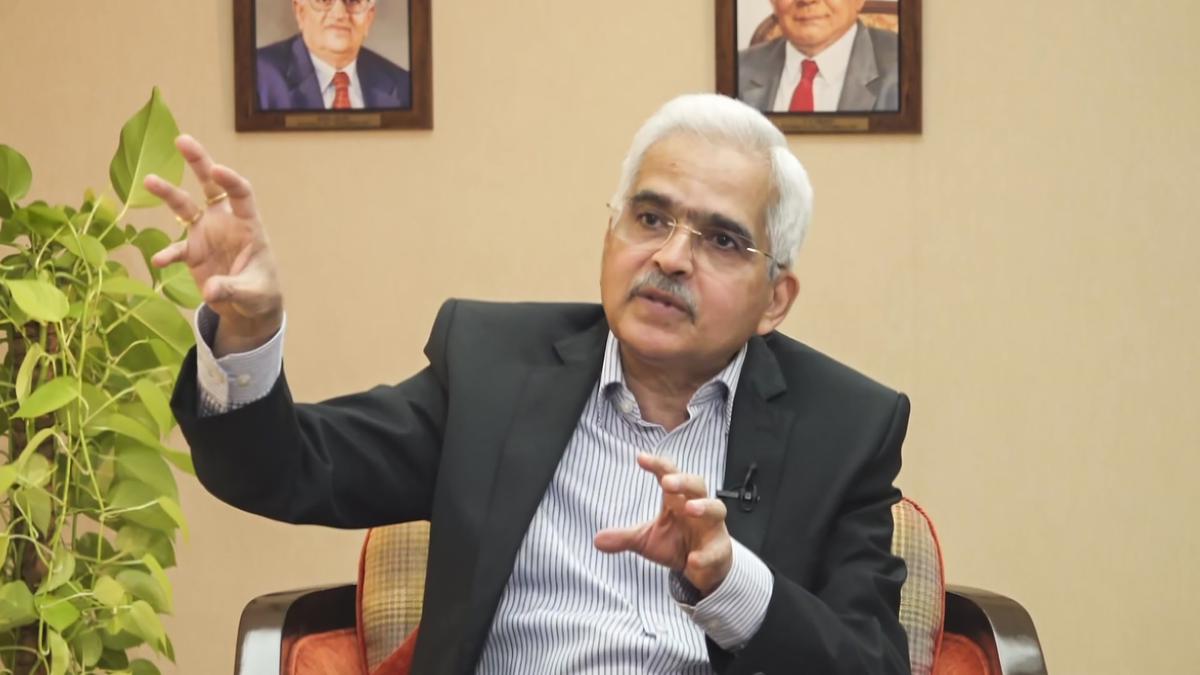Indian economy resilient despite global uncertainty, says RBI

**EDS: SCREENSHOT VIA PTI VIDEO** Mumbai: RBI Governor Shaktikanta Das speaks with PTI, Monday, June 26, 2023. (PTI Photo)(PTI06_26_2023_000030B)
| Photo Credit: –
Despite the global economy facing heightened uncertainty due to banking system fragility in certain countries, persisting geopolitical tensions and moderating but elevated inflation, the Indian economy and the domestic financial system remain resilient supported by strong macroeconomic fundamentals, the Reserve Bank of India (RBI) said in the 27th issue of the Financial Stability Report (FSR) which was released on Wednesday.
As per the FSR continuing growth momentum, moderating inflation, narrowing current account deficit, rising foreign exchange reserves, ongoing fiscal consolidation and a robust financial system are setting the economy on a path of sustained growth.
Healthy balance sheets of banks and corporates are engendering a new credit and investment cycle and brightening the prospects of the Indian economy, the RBI said in the report.
The capital to risk-weighted assets ratio (CRAR) and the common equity tier 1 (CET1) ratio of scheduled commercial banks (SCBs) rose to historical highs of 17.1% and 13.9%, respectively, in March 2023, it added.
Scheduled Commercial Banks’ gross non-performing assets (GNPA) ratio continued its downtrend and fell to a 10-year low of 3.9% in March 2023 and the net non-performing assets (NNPA) ratio declined to 1%, it further said.
“Macro stress tests for credit risk reveal that SCBs would be able to comply with the minimum capital requirements even under severe stress scenarios. The system-level capital to risk-weighted assets ratio (CRAR) in March 2024, under baseline, medium and severe stress scenarios, is projected at 16.1%, 14.7% and 13.3%, respectively,” the central bank said in the FSR.
RBI governor Shaktikanta Das in his foreword to the FSR said despite heightened uncertainties and formidable headwinds in the past three years, the Indian economy has made a solid recovery and is among the fastest-growing large economies.
“Since the last issue of the FSR in December 2022, the global and Indian financial systems have charted somewhat different trajectories,” he said.
“The global financial system has been impacted by significant strains since early March 2023 from the banking turmoil in the U.S. and Europe. In contrast, the financial sector in India has been stable and resilient, as reflected in sustained growth in bank credit, low levels of non-performing assets and adequate capital and liquidity buffers,” he added.
Mr. Das said both banking and corporate sector balance sheets had been strengthened, engendering a ‘twin balance sheet advantage’ for growth.
“The reach and depth of financial intermediation is being aided by technology and growing digitalisation, which provide new opportunities for growth and financial inclusion,” he added.
Stressing that new risks have necessitated reassessment of global standards on financial sector regulations, governor Das said both regulators and regulated entities in India must stay the course with an unwavering commitment to ensure a stable financial system.
“It has to be remembered that seeds of vulnerability often get sown during good times when risks tend to get overlooked,” he emphasised.
For all the latest business News Click Here

